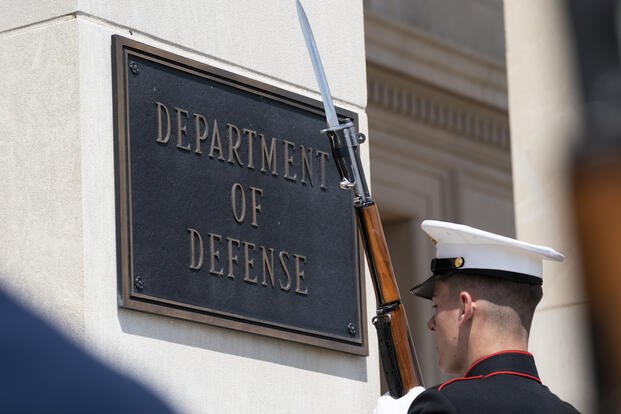Hegseth Ordered Second Strike to Kill Caribbean Boat Survivors: Report

Military.com | By Nick Mordowanec[1]
Published
Defense Secretary Pete Hegseth, following the first striking of a boat in the Caribbean in September, issued a verbal directive to U.S. service members to "kill everybody" with a second strike that would leave no survivors, according to a new report from the Washington Post.
The Post reported that the second strike was conducted at Hegseth’s discretion and carried out by the counterterror group SEAL Team 6 after two survivors of a vessel allegedly carrying narcotics were spotted. The vessel originally held 11 individuals before it was struck by a missile off the coast of Trinidad.
“The order was to kill everybody,” one of two people with direct knowledge of the operation told the Post.
A Pentagon spokesperson told Military.com it had no comment on the Post report, and it declined to comment further on operations involving the Caribbean and vessel strikes.
Chief Pentagon spokesperson Sean Parnell declined to address questions about Hegseth’s order and other details of the operation[2], according to the Post.
“This entire narrative is completely false,” Parnell said in a statement. “Ongoing operations to dismantle narcoterrorism and to protect the Homeland from deadly drugs have been a resounding success.”
Adm. Frank M. "Mitch" Bradley was reportedly the commander who oversaw the mission and allegedly justified the second strike by saying survivors could have called other drug traffickers to retrieve the two remaining survivors and any leftover cargo.
Protocols supposedly were altered following this incident in September, directing U.S. military to rescue survivors rather than kill them. In a strike on October 16 in the Caribbean, two men who survived a strike were captured and later sent to Ecuador and Colombia.
U.S. forces have downed at least 22 vessels since September, killing a minimum of 83 people. President Donald Trump and Hegseth have maintained that operations in the Caribbean are a response to “narco-traffickers” who they claim aspire to bring illegal drugs into the United States.
The actions have sparked tensions as critics say the escalation in the region is part of a broader military framework to potentially remove embattled Venezuelan President Nicolás Maduro.
Trump and Maduro spoke last week via phone about a potential in-person meeting, according to multiple new reports.
Colombian President Gustavo Petro has criticized the U.S. for its actions[3] in the Caribbean, proposing similar in-person meetings with regional partners and of course the U.S.
The White House responded in jest, with a spokesperson previously telling Military.com[4] that Petro “is an illegal drug leader strongly encouraging the massive production of drugs.”
Pete Hegseth[5] Department of Defense - DoD[6] Venezuela[7] Drugs[8] Navy SEALs - Sea-Air-Land[9]
© Copyright 2025 Military.com. All rights reserved. This article may not be republished, rebroadcast, rewritten or otherwise distributed without written permission. To reprint or license this article or any content from Military.com, please submit your request here[10].


